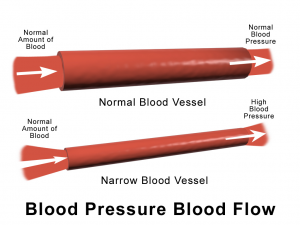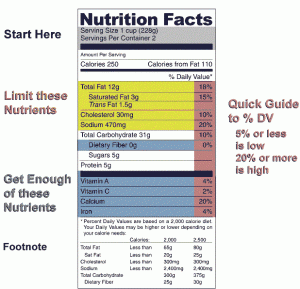It’s commonly known that high levels of salt has an impact on one’s blood pressure which is why several health care professionals advise their patients to decrease their salt intake. But from a recent study published in the Open Heart, it seems we’ve been focusing on the wrong white crystal. In fact, there is now increasing evidence that sugar may be more harmful for high blood pressure than salt itself.
In the case of sugar and salt, they both have a pretty bad reputation. Sugar is commonly linked to diabetes and obesity while salt is correlated with high blood pressure and other heart-related diseases. But now, sugar has taken over the spotlight as a larger factor for blood pressure than salt.
In a video from 41 Action News, Dr. O’Keefe believes sugar is now the biggest “demon” in our diet.

Sugar intake already has several negative effects on the body, mainly on the metabolic system. Now, it has been known to affect blood pressure in many ways. For example:
- increases insulin levels which leads to an increase in heart rate/blood pressure
- reduces reactivity of receptors that monitor blood pressure
- and reduces cell’s energy (ATP), causing blood vessels to constrict

A visual of what constriction of blood vessels looks like which causes high blood pressure.
(Via Wikimedia Commons)
In the study conducted, the researchers focused on the addition of fructose, commonly found in processed foods and sweetened beverages. The addition of fructose has been linked to various health problems, high cholesterol and high blood pressure as examples. The researchers also mentioned that sugars present naturally in foods are not linked to such problems. Sugars present in fruits and vegetables are normally less in quantity than other foods, but more importantly, they are present alongside other vitamins and nutrients. Thus, their sugar content is outweighed by the larger nutritional component of these fruits and vegetables.
Now, although it’s become increasingly important to monitor sugar intake, this doesn’t mean that salt consumption should be ignored. Excess sugar leads to insulin, metabolic, and other issues but salt has its own list of negative effects. Salt is a large risk factor for heart disease and will always be associated with high blood pressure; thus, it is just as important to monitor salt as it is to monitor sugar intake. In fact, low salt intake can also be just as harmful to our bodies than excess amounts. Therefore, balancing salt intake is crucial.

A general nutrition label shown that indicates what to cut back on/what to look out for.
(Via Wikimedia Commons)
As many researchers have noted, it’s all about moderation. Advising heart patients that they should be more concerned about their sugar consumption than salt would not be beneficial whatsoever. For those who have existing cardiovascular diseases, salt intake would be essential to keep an eye on. Therefore, since both are large factors for blood pressure, both must be given equal attention when monitoring one’s intake.
– Harsheen Chawla






